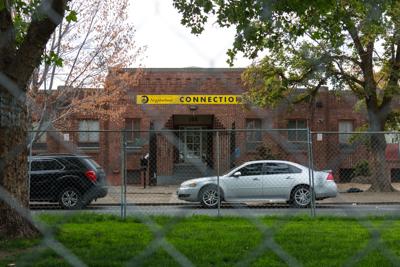No doubt local officials will be watching closely when a case out of Oregon comes up for the U.S. Supreme Court’s review in a few months.
Depending on how the justices rule, the case — Johnson v. Grants Pass, Ore. — could end up giving cities and counties a green light to unceremoniously sweep homeless people off of public property.
It would mean that Yakima County’s Encampment Removal and Cleanup Policy, approved by commissioners last July, would stand, and that additional official policies to root out people experiencing homelessness could be enacted.
In the Oregon case, the 9th Circuit Court of Appeals ruled against a Grants Pass rule forbidding homeless people from using bedding on public property. The policy was an attempt to tiptoe around existing caselaw that limits local governments’ powers to remove homeless encampments. People were free to sleep on the courthouse steps or in city parks if they had nowhere else to go — they just couldn’t have any sleeping bags, blankets or shelter of any sort.
The Supreme Court’s willingness to hear the case is music to the ears of some county and city officials across Washington. But it’s worrisome to agencies and advocates who work with people experiencing homelessness.
In recent years, the court has taken a sharp turn to the right politically, and many observers expect the justices to uphold the legality of municipal policies like the one the 9th Circuit just rejected.
“I don’t think this is going to end well,” Alison Eisinger, executive director of the Seattle/King County Coalition on Homelessness, told The Seattle Times.
But it could be good news for Yakima County’s policy, which is aimed specifically at homeless campers along the Yakima Greenway.
The county’s goals include protecting the integrity of the 20-mile-long Greenway, reducing crime and fire risks, and safeguarding the health of the nearby Yakima and Naches rivers — legitimate concerns in light of recent problems that have originated at or near homeless campsites.
But trying to outlaw poverty is a naïve strategy. Bulldozing people off public property only pushes the problem into somebody else’s yard. Then what?
And if the Supreme Court sides with Grants Pass when the case comes up this April, tougher — and more widespread — rules are sure to follow.
Considering some of the rhetoric coming out of Yakima City Hall lately, it’s not a stretch to imagine the City Council drawing up a get-tough policy that would let Yakima police haul off people huddling downtown, along Yakima and Naches avenues or up North First Street.
It’s easy to see why that might be an enticingly simple-sounding solution, but this is a problem that calls for clear — and compassionate — reasoning.
Jailing or fining people who have nothing is a futile pursuit. The answer isn’t punishment, and our court system is already overflowing with much more serious crimes than vagrancy.
The solution takes patience and collaboration, and if local governments are serious about achieving lasting fixes to the problem, they need to focus on supporting existing community safety nets. They need to redouble their efforts to address the root causes of homelessness — the critical lack of affordable housing, inadequate education, income disparity.
No matter how it goes, the Supreme Court’s ruling will tell us a lot about who we are.




